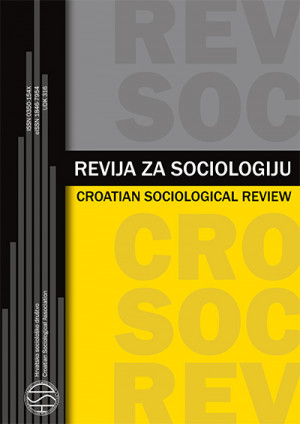Kako nastaju kolektivna sjećanja: promišljanja o interakcionističkom modelu kolektivnih sjećanja
How Collective Memories Are Formed: Considering an Interactionist Model of Collective Memories
Author(s): Tanja Vučković JurošSubject(s): Social Sciences
Published by: Hrvatsko sociološko društvo
Keywords: collective memories; narratives of the past; Halbwachs; mnemonic socialization; interactionism; interactionist model
Summary/Abstract: The goal of this paper is to delineate an interactionist model of collective memories that would complement the semiotic and institutional approaches to memories, which have so far been dominant in the field. While the strength of semiotic and institutional approaches is in the structural analysis of memory objects and the analysis of the production of collective memories by the political elites and the mainstream media, they are less able to consider the role of lay individuals and their negotiations of depictions of the past that are imposed from above. The interactionist model, on the other hand, conceptualizes collective memories as the narratives of the past and includes both the individual beliefs and the institutionally-embedded level of social interaction in the analysis of collective memories. Specifically, it proposes that the influences on the individual narratives of the past include three levels: the macro level of elite narratives of the past; the interactional level of mnemonic communities; and, the micro level of idiosyncratic experiences. In this manner, this model tackles the weaknesses of the semiotic and institutional approaches and provides a way to study the processes through which certain collective memories become established in society, and also why some others fail to achieve widespread societal legitimacy. As a further step, this model also attempts to provide a framework for operationalization of collective memories, which would include the interaction of both the political-production and the active-interpretation dimension of this concept.
Journal: Revija za sociologiju
- Issue Year: 40/2010
- Issue No: 1
- Page Range: 79-101
- Page Count: 23
- Language: Croatian

